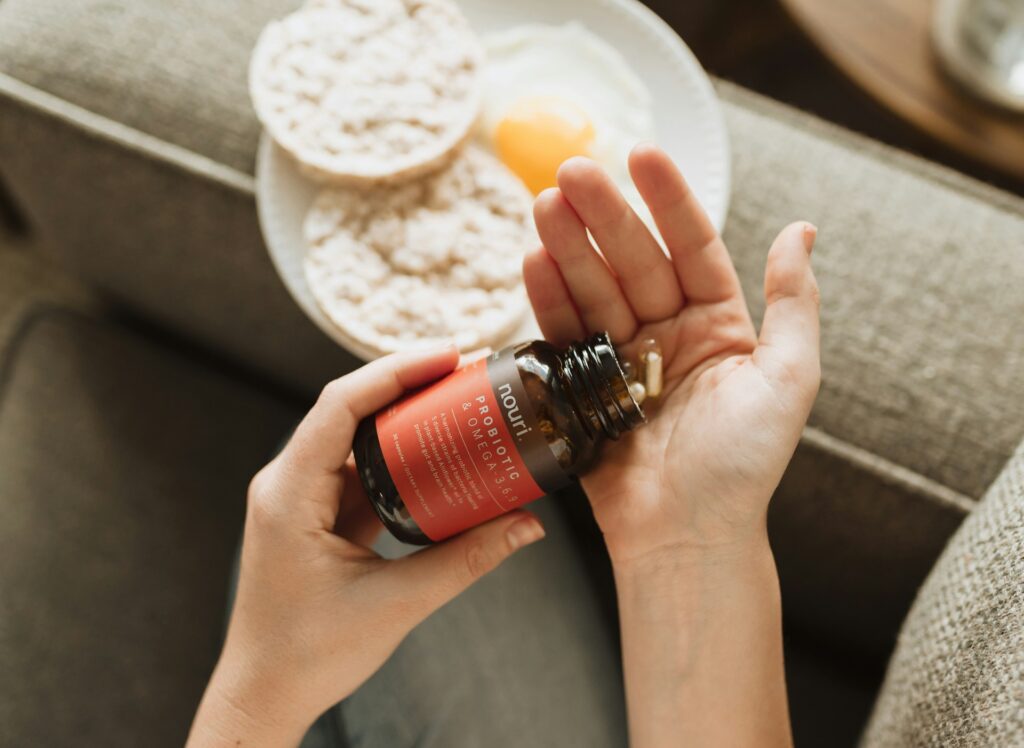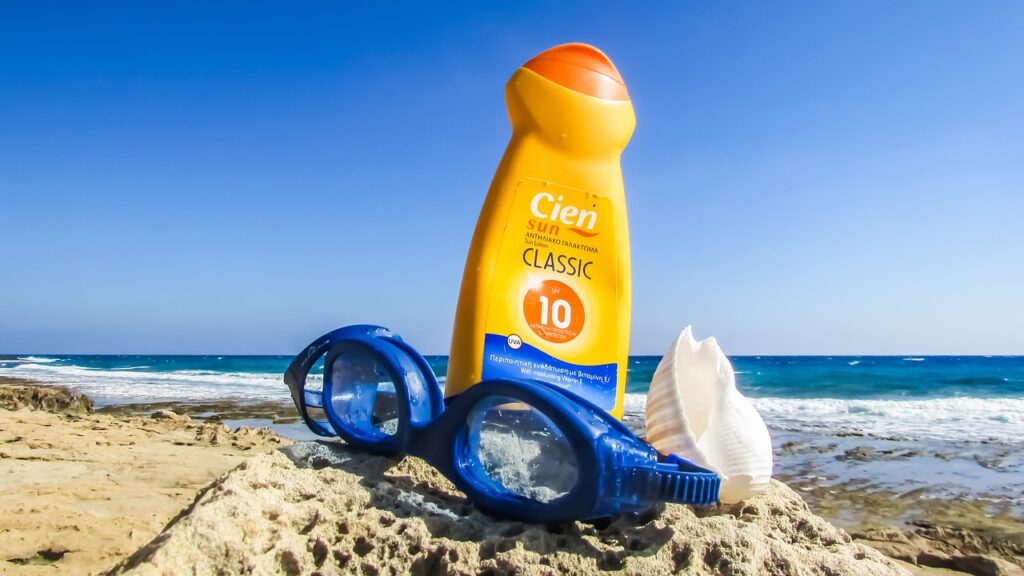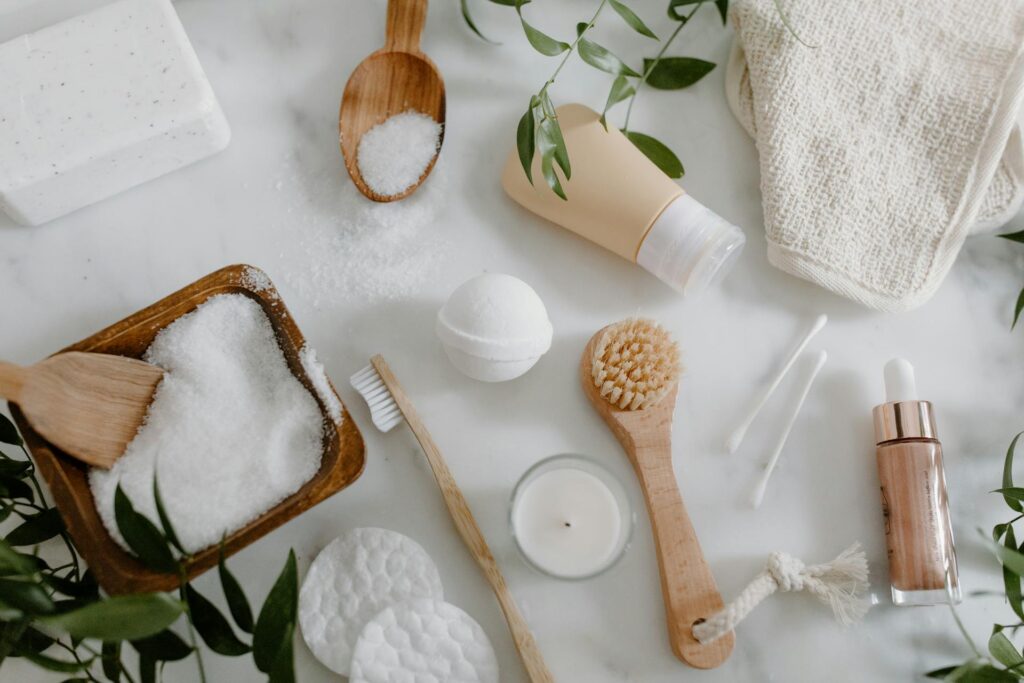- Introduction
- A few primitive you may count
- What are Probiotics?
- What are Prebiotics?
- What are Postbiotics?
- What is Microbiome?
- What is the Skin Microbiome?
- Connection between Gut and Skin
- Why does skin flora become out of Balance?
- What do probiotics do for your skin?
- Probiotics for skin health may also help:
- Oral Ingestion versus Skin Application
- Probiotic Skincare Products
- Different types of Probiotics in Skincare
- Key Benefits of Probiotics in SkinCare
- Probiotic skincare for Acne
- Probiotics for Neurodermatitis
- Probiotic skincare for wound healing
- Probiotic skincare for Psoriasis
- Probiotic skincare as Anti-aging
- Probiotics for keratinization disorders
- Probiotics help with Dry skin
- Perioral dermatitis and probiotics
- Probiotics against Rosacea
- Baby care with probiotics
- Verdict
Introduction
Probiotics are preparations that contain living microorganisms. The term comes from Greek and means something like “for life”. Probiotics are primarily absorbed through food and can thus support the intestinal flora. Probiotics are naturally found in various foods, including yogurt, certain types of cheese, or kimchi. There are also probiotic food supplements in the form of capsules or powder.
Probiotic skincare, which has become a hot topic in recent years, is designed with the goal of not only ingesting probiotics through food but also applying them to the skin, thereby balancing the skin flora and achieving a beautiful skin environment. If you want to learn more about the basics and benefits of probiotic skincare products, keep reading.
A few primitive you may count
Our bodies are inhabited by bacteria with a greater number of cells than our cells, and this is called the “microbiome.” The intestinal flora contains approximately 40 trillion bacteria, close to the number of cells in humans, and microorganisms are also present on the skin, oral cavity, nasal cavity, vagina, etc.
The balance of intestinal bacteria is called the intestinal flora, while the balance of bacteria on the skin is called the skin flora. By providing a good environment for the microbiome, the intestinal flora and skin flora can be kept in balance, making us beautiful both inside and out.
What are Probiotics?
Probiotics are defined as live microorganisms that benefit the host when ingested in sufficient amounts. They are also called good bacteria. They are found in fermented plant extracts and fermented foods (yogurt, kimchi, pickles, etc.), and when ingested, live microorganisms enter the body and defeat bad bacteria, making us healthy. Bifidobacteria and lactic acid bacteria are well-known examples.
What are Prebiotics?
Prebiotics are the nutrients (food) that good bacteria (probiotics) eat to survive. They are defined as food components that benefit the host by, for example, multiplying probiotics, and examples of these include foods rich in fiber, such as whole grains and vegetables. Prebiotic ingredients such as:
- Oligosaccharides
- Alpha-Glucan
- Amino Acids
- Pseudoalteromonas Exopolysaccharides
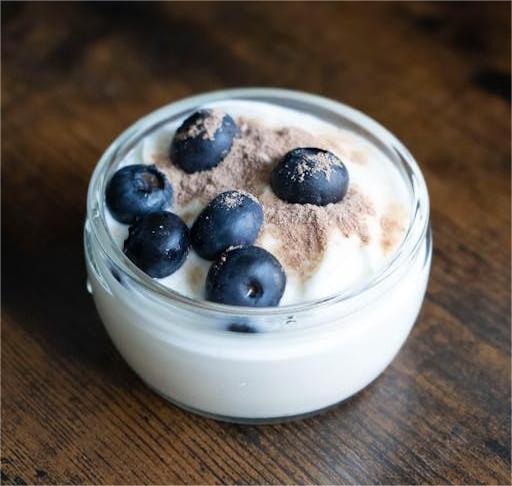
What are Postbiotics?
Postbiotic substances are inactivated bacteria with or without their metabolic products. Probiotics and postbiotics are often equated, but unlike probiotics, which are living bacteria, postbiotics are not viable. These include filtrates, lysates, or fermented extracts:
- Bifida Ferment Lysate
- Lactobacillus Ferment
- Lactobacillus ferment lysate
- Lactobacillus Bulgaricus Ferment Filtrates
- Lactococcus Ferment Filtrate
- Galactomyces Ferment Filtrate
- Faex Extract
- Yeast Extract
What is Microbiome?
Microbiome refers to the totality of all microorganisms that colonize a macroorganism, a human, or another living being. These include, above all, various types of bacteria, but also certain viruses, fungi and yeasts. What may seem strange at first glance is essential for our physical well-being. The microorganisms colonize the entire body but are mainly found in the intestinal flora and on the skin flora. The intestinal microbiome has a decisive influence on digestion and the immune system.
What is the Skin Microbiome?
Similar to the intestines, good bacteria also protect the skin. They play a key role in protecting the skin from external influences and warding off unwanted bacteria. The skin flora also contributes to an intact skin barrier. To optimally fulfill these tasks, a large variety of bacteria is beneficial.
Today we know that a person’s microbiome is as unique as a fingerprint. The composition of the microbiome depends on various factors such as genetic predisposition, various environmental factors, and one’s lifestyle.
Connection between Gut and Skin
Studies show that the gut microbiome influences the skin microbiome. To explain this effect, we must first look at the gut-brain axis. This term describes the scientifically proven connection between the gut and the brain, or more precisely the central nervous system. The gut also has a nervous system that controls a variety of processes in the body.
Both nervous systems are in active communication and can influence each other. The gut microbiome is also involved in communication, with gut-friendly bacteria producing special messenger substances as well as serotonin (often referred to as the happiness hormone) and dopamine.
Why does skin flora become out of Balance?
The composition of the skin flora and its bacteria is unique, complex, and susceptible to change. A whole range of internal (endogenous) and external (exogenous) influences can throw the skin’s microbiome out of balance:
- UV radiation from the sun
- Fine dust in the air
- Nicotine consumption
- Psychological and physical stress
- lack of sleep
- Hormonal fluctuations
- Unbalanced diet
- Certain medications
Of course, incorrect skin care can also disrupt the delicate balance. A weakened skin flora promotes redness, dryness, or sensitivity. An increased tendency to acne or other inflammatory skin conditions is also possible.
What do probiotics do for your skin?
How exactly do probiotics help skin? The researchers say that topical probiotics work by strengthening the skin’s natural defense barrier, benefiting the skin’s immune response, and exerting a direct effect at the application site through the production of antimicrobial peptides that, as commensal strains, eliminate pathogens.
In other words, probiotics boost your skin’s healing and immune defenses, helping to fight off the bad stuff that tries to get between you and glowing, healthy skin.
Probiotics for skin health may also help:
- Balances the skin’s pH levels
- Healing wounds
- Reduces oxidative stress caused by free radicals
- Improves skin’s moisture barrier to lock in moisture
- Increases the production of hydrating lipids known as ceramides.
- Slows down the effects of aging
- Reduces the risk of skin cancer
You may also notice a host of other holistic health benefits from using a probiotic before and after your skincare routine. Probiotics can help with a variety of issues, from cold symptoms to yeast infections to urinary tract infections. Plus, they can improve digestive function and boost your immune system.
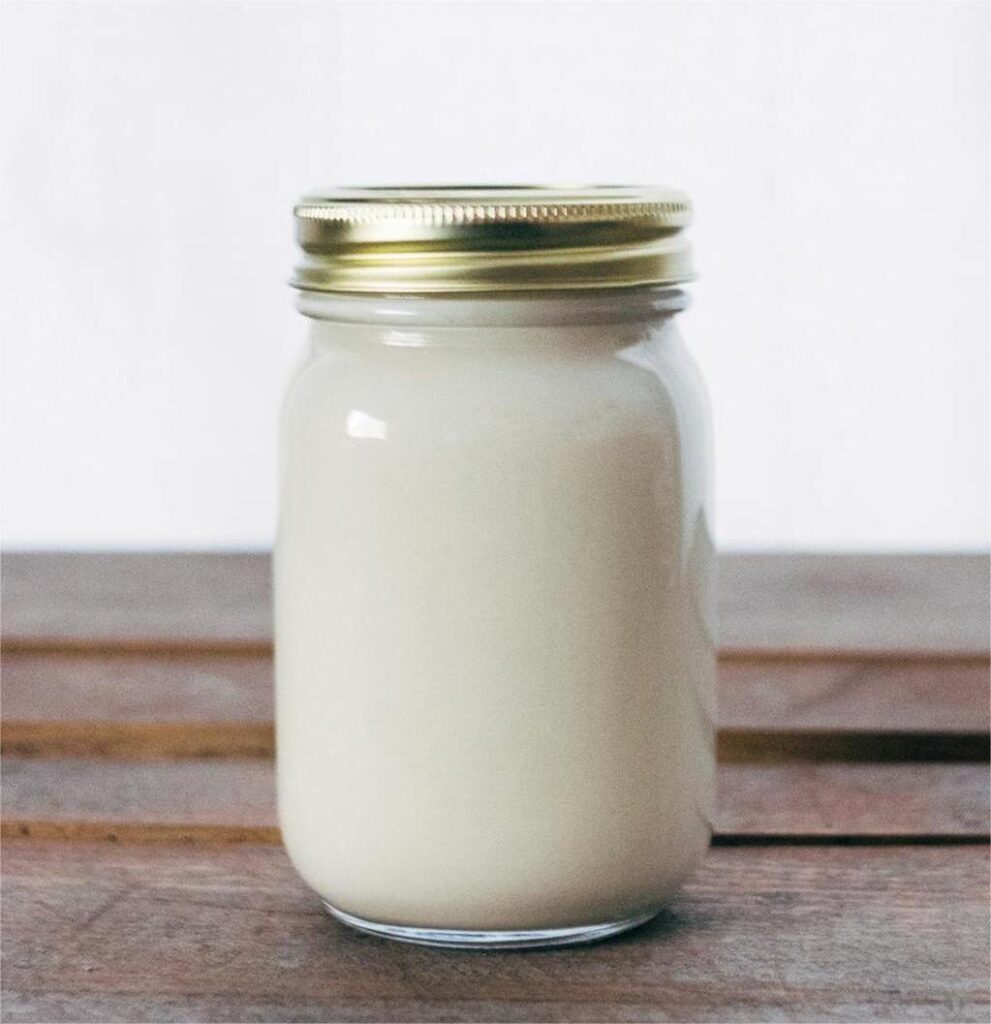
Oral Ingestion versus Skin Application
Probiotics can be taken orally through food or probiotic supplements, which deliver healthy bacteria directly into the gut, or through beauty creams such as moisturizers and lotions, which apply probiotic formulas directly to the surface of the skin.
Oral intake of probiotics
Since many healthy bacteria and microorganisms naturally reside in our guts, scientists and researchers are increasingly interested in using probiotics to improve digestive health.
To have long-term beneficial effects, we must regularly consume probiotic-rich foods, such as cheese and yogurt, as well as probiotic-raw foods, such as bananas, onions, and asparagus, to continuously supply the body with fresh bacteria. This important step replenishes the probiotics that have been destroyed by the time they reach the intestines.
Probiotics for the skin
Probiotic skin creams also have great benefits. They can help maintain skin health. Both probiotics and prebiotics play an important role in achieving healthy skin texture and helping to relieve existing skin problems. Try adding them to your daily skincare routine and daily diet.
Remember to choose products formulated with probiotic ingredients such as oatmeal gum. The probiotic raw oatmeal formula not only makes dry and sensitive skin hydrated and smooth but also nourishes the skin and maintains perfect balance.
Probiotic Skincare Products
If you want to make topical probiotics part of your skincare rotation, there are a variety of options available from probiotic skincare lines.
- Facial cleanser, cleanser, exfoliant
- Moisturizers, creams, gels, serums
- Sheet mask
- Deodorants
- Primer and foundation
Different types of Probiotics in Skincare
Lactobacillus fermentation liquid
Lactobacillus fermentation extract is a probiotic derived from milk that is effective for sensitive skin. It has been scientifically proven to be effective in protecting the skin, preventing inflammation, and preventing rough skin. Unfortunately, this ingredient is not vegan. However, there are also ingredients derived from plant fermentation extracts and natural yeast that are safe for vegans to use.
Bifidobacterium culture lysate
Bifidobacterium culture lysate is a natural bacterium that quickly colonizes our bodies. As a fermentation derivative, Bifidobacterium culture lysate is used in the skincare industry for moisturizing, enhancing the skin’s barrier function, and protecting the skin from UV rays. Unlike other probiotic ingredients, it does not have a specific origin and is found in animal feces and intestines, while natural probiotics are extracted from grains.
Rice fermentation liquid
Sake is alcohol made by fermenting rice. The fermented ingredients suppress acne-causing bacteria and skin inflammation and filter the skin.
Saccharomyces culture medium
Saccharomyces fermentation liquid is a fermented yeast-derived ingredient that is rich in minerals, beta glutamate, amino acids (protein building blocks), and vitamins. It helps minimize skin darkening, improves skin protection from UV rays, and softens and conditions the skin.

Key Benefits of Probiotics in SkinCare
Probiotic bacteria are known to help treat a wide range of skin conditions, including:
- Acne
- Neurodermatitis
- Wound healing
- Psoriasis
- Anti-aging
- Keratinization disorders
- Dry skin
- Perioral Dermatitis
- Rosacea
- Baby care
Probiotic skincare for Acne
Acne is caused by a variety of different factors, including hormonal status, predisposition, external factors, stress, and environmental factors. The microbiome – of the intestine and the skin – also plays a crucial role. As early as 1912, the first studies showed that “bacterial therapy” could help treat acne. Since then, various studies have followed with certain bacterial strains that can curb the growth of the acne-promoting bacteria P. acnes and thus alleviate acne.
Probiotics for Neurodermatitis
Neurodermatitis is the extreme form of dry skin. The pH value slips into the alkaline environment, which changes the balance of the microbiome and means that the skin can no longer effectively defend itself against environmental influences. The skin’s protective barrier weakens and holes appear.
The unprotected state dries out the skin to the point where lamellar scales become visible. As with dry skin, a key to improving this skin condition is to use probiotics to change the skin microbiome to its normal state, which will regenerate the skin’s pH and stabilize skin functions.
Probiotic skincare for wound healing
When wounds occur and during wound healing, the skin microbiome changes locally. The reason for this is the injury and the associated activation of the immune system. The use of probiotics in curbing infections and inflammation has been investigated in various studies with positive results. But here too, there are strong differences between the respective studies. In addition, the effectiveness depends on the type of bacteria used.
Probiotic skincare for Psoriasis
Triggered by emotional overload, psoriasis is a chronic, inflammatory skin condition that occurs in bouts. Anyone who suffers from psoriasis knows the positive effect of probiotic skincare on dry, hardened areas of skin. Probiotic skincare actively supports the skin flora and helps reduce the symptoms of psoriasis.

Probiotic skincare as Anti-aging
With the many positive indications of probiotic therapeutics in the treatment of various skin diseases, it is inevitable to consider their use in skin care cosmetics. In recent years, probiotic skin care products have come onto the market at record speed. They are said to slow down extrinsic and intrinsic aging processes and also have the following effects:
- Restoring the skin’s acidic pH
- Reduction of oxidative stress
- Relief of UV-related skin damage (photoaging)
- Improving the skin’s barrier function
- Improve hair quality
One of the most important properties of probiotics seems to be that when applied to the skin they act as a kind of protective film. This film forms the basis for the growth of the skin’s bacteria – the best conditions for a healthy skin microbiome.
Probiotics for keratinization disorders
Skin that is out of balance struggles with the problem of keratinization: underlayers and blackheads, so-called comedones, form. Excessive keratinization of the skin closes the pore openings, which means that the sebum is trapped in the sebaceous gland and cannot drain away. In this condition probiotics are very useful by helping the skin to find balance, probiotics can also reduce the signs of keratinization disorders.
Probiotics help with Dry skin
If you look at dry skin under a microscope, you can see a thinner epidermis, reduced sebum production, a leaky barrier layer, and a change in the skin’s microbiome. There is a solution to alleviate all of these problems: Probiotic skincare adds skin-friendly microorganisms to the microbiome, which adjusts the skin’s pH value back to the skin-friendly pH value of 5.5. At this pH value, the skin can function ideally, the right bacteria make up the skin’s microbiome and the barrier layer and the epidermis can regenerate.
Perioral dermatitis and probiotics
Probiotic skin care is the exception to the otherwise recommended zero therapy for perioral dermatitis because the skin problems with the so-called “stewardess disease” coincide with the benefits of probiotics in the skin. Combined with particularly soothing and low-irritation ingredients, probiotics help to counteract over-nourishment of the skin.
Probiotics against Rosacea
In this series of skin diseases that can be classified by a change in the skin’s microbiome, rosacea is also one of the skin problems that benefit from probiotic ingredients in skin care. Skincare with probiotics for sensitive skin can strengthen the skin’s microbiome and support the skin’s resilience.
Baby care with probiotics
Skin care products with probiotics that are tailored to babies and found to be safe are used especially in the first few months of newborns to counteract the strong changes in the microbiome. Typically occurring skin changes such as newborn acne, redness, or eczema can be gently remedied in this way. It is important to use pure probiotic care without the addition of other potentially skin-irritating ingredients and to carry out a special test to determine suitability for baby skin.
Verdict
To have healthy and radiant skin, it is necessary to pay attention to the active ingredients that are crucial in skincare or facial care. Skincare with probiotics and prebiotics is one of the latest trends in the beauty industry In recent years.
Probiotics are a useful addition to skincare to combat a wide range of skin conditions. The special ability of probiotic skincare to strengthen the skin microbiome and support the skin’s resilience. However, as research is still developing, consult with a specialist before incorporating new probiotic products into your skincare regime.
